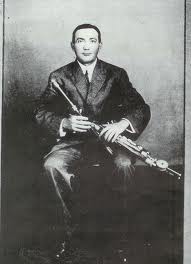Hello! Ask me (almost) anything about traditional music.
Annotation:Maid on the Green (The)
X:1 T:Maids on the Green, The M:6/8 L:1/8 R:Jig B:James Goodman music manuscript collection, Book 1, p. 29 (mid-19th century) F: http://goodman.itma.ie/volume-one#?c=0&m=0&s=0&cv=32&z=146.42%2C1092.4235%2C9718.0531%2C3722.2222 F:at Trinity College Dublin / Irish Traditional Music Archive goodman.itma.ie Z:AK/Fiddler’s Companion K:G d|gfg e2d|Bee dBA|Bdd dBG|BAA A2d| gfg e2d|Bee dBA|Bdd dBA|BGG G2:| |:d|gfg afd|gfg a2d|gfg afd|Bee e2f| gfe agf|gfg e2d|Bee dBA|BGG G2:|
MAID ON THE GREEN, THE. AKA – "Kate of Kenmare," "Maiden on the Green," "Maids on the Green." AKA and see: "Aindear ar b-Faitce (An)," "Aindear air anBainseac (An)," "Gearrchaile ar an bPlásóg (An)," "Night of the Fun (1) (The)," "Trip to Dublin (3)." Irish (originally), English, Canadian; Double Jig (6/8 time). Canada, Cape Breton. G Major. Standard tuning (fiddle). AAB (Raven): AABB (Allan, Brody, Cole, O'Neill {all versions}, Perlman, Roche, Sweet): AABBCC (Moylan). A popular jig played in Ireland, Scotland, Cape Breton, and for American contra dancing. Bayard (1981) believes this tune to be a derivative of some original tune that also spawned "(Daniel) O'Connell's Welcome to Parliament (1)," "Farewell to the Troubles of the World" (Slan agus Beannacht le Buaidhreamh an tSaoghail), and "Night of the Fun (1) (The)." Cape Breton fiddlers sometimes call the tune "Trip to Dublin (3)," by which name the tune was called in Köhlers' Violin Repository, Book 1 (1885, No. 85). Sliabh Luachra accordion player Johnny O'Leary's three-part tune consists of a different 'B' part inserted between the two parts found in O'Neill.
"Maid on the Green" was included in Book 3 of the large c. 1883 music manuscript collection of County Leitrim piper and fiddler biography:Stephen Grier (c. 1824-1894). Chief O'Neill (1848-1936) remarked that:
I believe it was known all over Ireland as well as at my boyhood home [ed.-Tralibane, Co. Cork , mid-19th cent.], until I visited Ireland in 1906, and found that the competitors at the Munster Feis seemed to be unacquainted with it.[1]
A similar setting, under the title "Night of the Fun (1) (The)" was printed by Henry Hudson in The Dublin Monthly Magazine (March, 1843), which is the title O'Neill gave the tune in his Dance Music of Ireland (1907, No. 114). See also a related but untitled tune in R.M. Levey's Dance Music of Ireland, second collection (1873, No. 105). The earliest sound recording of the jig was by uileann piper Patsy Touhey, recorded on a cylinder machine by Capt. Francis O'Neill in Chicago in the early years of the 20th century (released on CD on Ward Irish Music Archives WIMA 002, in 2010). Paul de Grae finds Touhey's setting closer to the one printed in Ryan's Mammoth Collection (1883) then to the one printed by O'Neill. While the first strains are similar, the second strain in the Elias Howe publications (including Ryan's Mammoth) is closer to that of the variants "Daniel O'Connell's Welcome to Parliament/O'connell's Welcome" [2]. A version by Touhey was issued on a 78rpm commercial disc in 1924, after Touhey’s death.



